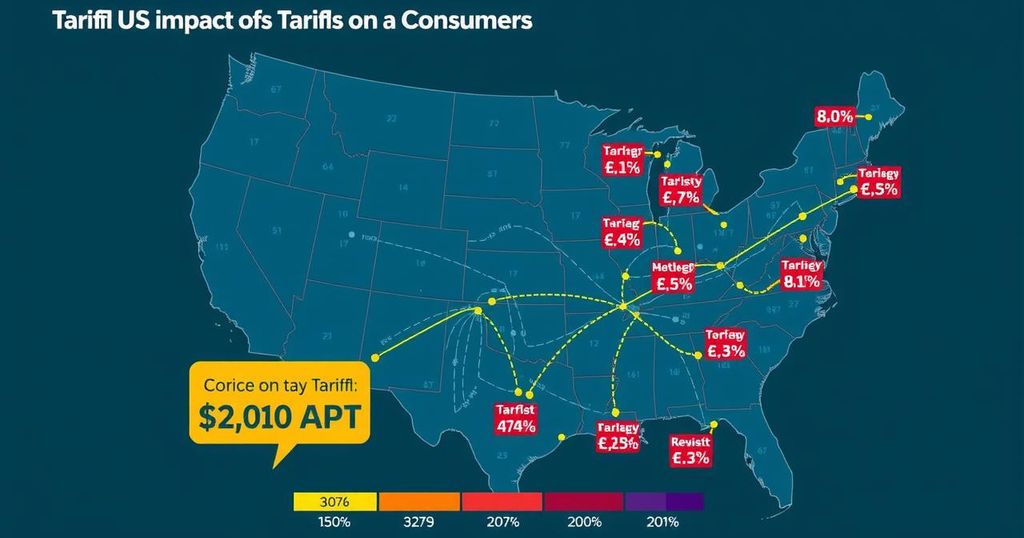Impact of Trump’s Tariffs on U.S. Consumers and Economy
President Trump’s proposed tariffs on imports from Canada, Mexico, and China could lead to substantial price increases for American consumers in various sectors, including fuel, automobiles, electronics, and food. Economic experts warn that the tariffs, aimed at addressing crime and promoting domestic production, will ultimately burden consumers with higher costs, complicating their financial planning amid ongoing inflationary pressures.
The proposed tariffs announced by President Trump on imports from Canada, Mexico, and China may have significant repercussions for American consumer prices. The 25 percent tariff expected on goods from Canada and Mexico, alongside a 10 percent tariff on imports from China, aims to address issues such as crime and drug influx but could result in elevated costs for essential goods. Economic experts suggest that such tariffs could lead to price increases in various sectors, particularly in gasoline, automobiles, electronics, groceries, and toys, ultimately passing the increased costs onto consumers.
Canada is a primary supplier of crude oil to the United States, exporting over 3.8 million barrels per day. A substantial tariff on this oil could lead to notable spikes in gasoline prices, especially in regions dependent on this import. Patrick De Haan from GasBuddy.com indicated that consumers might witness a 25-75 cent increase per gallon due to these tariffs owing to the dependency on Canadian heavy oil.
Mexico holds the position of the largest exporter of vehicles and components to the U.S., comprising 27 percent of American imports. The tariffs on auto parts could escalate the cost of vehicles, impacting assembly operations within the U.S. Analysts from Bernstein noted the precarious position of the U.S. auto industry should these tariffs be implemented.
Furthermore, a significant portion of electronics, machinery, and toys imported from China would likely experience price surges, affecting consumer electronics and leisure items substantially. Produce and meat imports from Mexico and Canada amount to billions of dollars annually, and any increased tariffs could further strain consumer budgets already burdened with rising grocery costs since 2020.
Overall, these tariffs might jeopardize the affordability of everyday items, posing a considerable challenge for American households.
The imminent tariffs proposed by Donald Trump target the U.S.’s three largest trading partners, Canada, Mexico, and China, intending to bolster domestic production and curb illegal immigration. However, such tariffs typically lead to increased consumer prices, which may not align with voter expectations, especially considering the delicate nature of the current economic landscape marked by inflation. Many American consumers rely heavily on imports for essential goods, and any disruption could lead to a significant economic backlash.
In conclusion, the proposed tariffs on imports from Canada, Mexico, and China could drastically impact American consumers by increasing prices across various sectors, including gas, vehicles, electronics, and groceries. While aimed at promoting domestic industry and addressing immigration issues, the economic fallout from these administrative actions poses significant risks to consumer affordability and the overall economy, particularly for essential goods.
Original Source: www.independent.co.uk




Post Comment